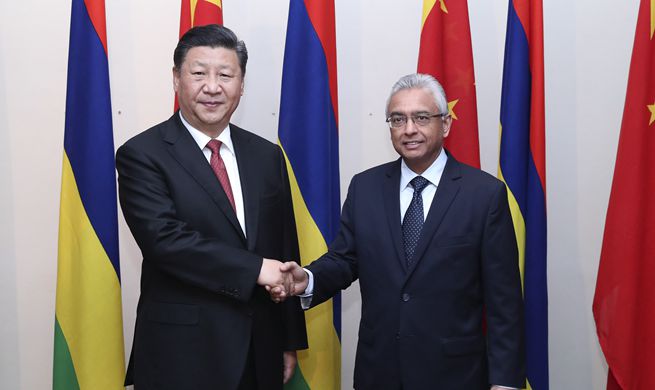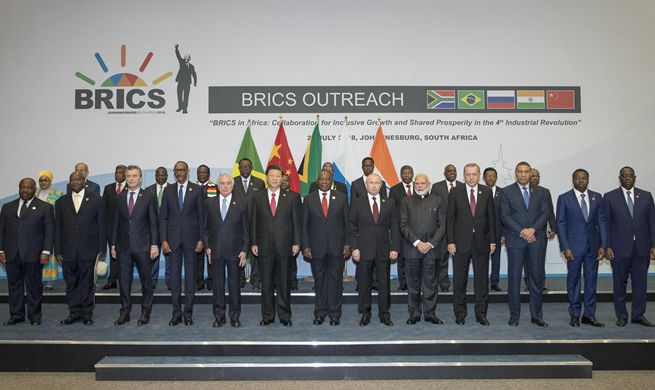BERLIN, July 30 (Xinhua) -- Moia, the new ride-sharing subsidiary of the Volkswagen Group, has officially progressed from a one-year test phase to regular operations in the German city of Hannover on Monday.
A spokesperson for Moia announced that it had obtained regulatory approval to offer mobility services with a fleet of 55 Volkswagen "T6" minibuses with up to 18,500 registered users in the capital of Lower Saxony. "Hannover is the first city in which we want to become a permanent part of public mobility," a statement by Moia chief executive officer (CEO) Ole Harms read.
The Volkswagen subsidiary was founded as a digital car-pooling alternative to public transportation providers, conventional taxis services and new market entrants like Uber. Customers use a mobile phone application to order Moia vehicles to a virtual stopping place in their geographical proximity. A specially-developed algorithm hereby ensures that drivers only collect passengers whose destinations all fall along a similar route.
In the coming years, Moia aims to raise the number of its vehicles and customers gradually in Hannover. Additionally, the company wants its entire fleet of currently still petrol-powered "T6" minibuses to be electrified by 2023.
The development of Moia from a pilot project to a fully-fledged enterprise is only the latest sign of increasing efforts by the German automotive industry to regain footing against international competitors in the areas of electric-, autonomous-, networked- and shared vehicles. Among others, Volkswagen plans to enter the increasingly-crowded carsharing market in Germany as well with its own fleet of purely-electric vehicles.
Even suppliers like Robert Bosch and Continental have begun to branch out into new products such as ride-sharing and corporate fleet management. In an unusual move for the two rival carmakers, Daimler and BMW recently announced the merger of their respective car-sharing platforms Car2Go and DriveNow.
However, Volkswagen has also encountered resistance against the launch of its ride-sharing subsidiary in Hannover. Local taxi drivers in particular have voiced concerns that Moia will disrupt their traditional business model by exerting downward pressure on prices charged to customers.
Taxi firms criticize that Moia enjoys several unfair advantages due to differences in the regulatory regime governing the competing mobility services. Taxi cabs in Hannover must adhere to strict rules regarding their hours of operation and setting of prices and cannot legally refuse to transport customers when otherwise unoccupied. By contrast, Moia only operates during select high-demand periods of the day and can determine by itself how much to charge and whom to collect.
As a consequence, the local taxi distribution center Hallo Taxi 3811, which represents 600 vehicles, is currently assessing whether to file a lawsuit against Moia to revoke the license it obtained on Monday. The group had already unsuccessfully sought to prevent the initial granting of regulatory approval to the Volkswagen subsidiary's operations in Hannover during an earlier court case at the Celle Higher Regional Court.
"We have not given up yet," Hallo Taxi spokesperson Alex Emmert told the newspaper ZEIT.












